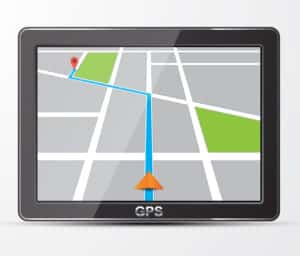How GPS Evidence Is Used in San Diego Criminal Cases

GPS Evidence
GPS evidence is used in San Diego criminal cases. In today’s increasingly digital world, GPS technology has become a powerful tool for prosecutors in San Diego criminal cases. From smartphones and vehicle navigation systems to fitness trackers and social media check-ins, location data creates a detailed digital footprint that can place suspects at crime scenes or contradict alibis. Understanding how this evidence is collected, presented, and potentially challenged is crucial for anyone facing criminal charges in San Diego County.
At Dod Law, we’ve defended numerous clients in cases involving GPS evidence across San Diego County. Our experience provides valuable insight into how this technological evidence impacts criminal proceedings and defense strategies.
How Prosecutors Use GPS Evidence in San Diego Courts
San Diego prosecutors leverage GPS evidence in various ways throughout criminal proceedings:
Establishing Presence at Crime Scenes | GPS Evidence
The most straightforward application is placing a suspect at a crime scene. GPS data showing a defendant was at a specific location when a crime occurred creates a powerful connection that can be difficult to overcome without context or explanation.
Contradicting Alibi Defenses
GPS evidence is frequently used to undermine alibi claims. When a defendant states they were elsewhere during a crime, contradictory location data can severely damage credibility and defense narratives.
Demonstrating Patterns and Premeditation
In more complex cases, prosecutors may use location data over time to establish:
- Surveillance of potential victims or targets
- Reconnaissance of crime scenes before incidents
- Patterns of stalking or harassment
- Planning and preparation activities
These patterns can support charges requiring intent or premeditation, particularly in serious felony cases.
Corroborating Witness Testimony
When witness accounts align with GPS data, prosecutors present this as mutual corroboration, strengthening both pieces of evidence. This combination of human testimony and technological confirmation can be particularly persuasive to San Diego juries.
Challenging GPS Evidence in San Diego Criminal Defense
Despite its perceived objective nature, GPS evidence has significant limitations and vulnerabilities that experienced defense attorneys can exploit:
Technical Accuracy Limitations
GPS technology itself has inherent precision limitations:
- Urban environments with tall buildings can create “urban canyons” that distort signals
- Cell tower data often provides only general location information covering several blocks
- Indoor locations may show inaccurate coordinates as signals bounce or weaken
- Weather conditions can affect signal quality and location accuracy
Our defense strategy often includes consulting with technical experts who can explain these limitations to jurors and prosecutors.
Chain of Custody Issues
Like all digital evidence, GPS data must be properly collected, preserved, and authenticated. We scrutinize:
- Whether proper search warrants were obtained
- How data was extracted and stored
- Whether original records were altered during analysis
- If the prosecution can prove the device actually belonged to our client
Procedural errors in these areas can lead to evidence suppression or significantly diminished credibility.
Alternative Explanations
Even accurate GPS data requires interpretation. We develop alternative explanations for location information:
- Proximity to a location doesn’t prove participation in activities there
- Devices may be borrowed, stolen, or used by multiple people
- Automated activities (like app updates) may generate location data without active use
- Innocent explanations may exist for patterns of movement
Contextualizing GPS evidence often reveals its limitations as proof of criminal activity.
Constitutional Challenges
In some cases, GPS evidence may be obtained in ways that violate Fourth Amendment protections against unreasonable searches. Based on recent Supreme Court decisions, we may challenge:
- Warrantless tracking of vehicles
- Extended surveillance using cell site location information without proper warrants
- Overly broad search warrants that exceed constitutional limitations
- Illegal searches of devices that revealed location data
Successful constitutional challenges can prevent prosecutors from using improperly obtained evidence entirely.
Contact an Experienced San Diego Criminal Defense Attorney |GPS Evidence
If you’re facing criminal charges in San Diego involving GPS or other technological evidence, having knowledgeable legal representation is crucial. At Dod Law, our defense team brings nearly two decades of experience in San Diego County courts, including extensive work with cases involving complex digital evidence.
Our founding attorney, Dod Ghassemkhani, was named San Diego County’s 2023 Trial Lawyer Of The Year by the San Diego Criminal Defense Bar Association. With experience handling over 6,500 criminal cases, our team offers the skilled, sophisticated representation needed when facing charges supported by technological evidence.
To schedule a free consultation with a member of our first-class legal team, call us today at our San Diego office (619) 814-5110 | Orange County office 949-681-7020 | Vista office 760-814-6025 | or schedule an appointment by filling out our online contact form
At a Glance
Meet Attorney Dod Ghassemkhani
- Recent Case Results
- San Diego Criminal Defense Bar Association | Named San Diego County’s 2023 Trial Lawyer Of The Year
- Award Winning Criminal Defense Attorney
- The National Trial Lawyers: Top 100 Trial Lawyers
- Over 20 years of criminal defense experience
- 10.0 “Superb” Avvo Rating
